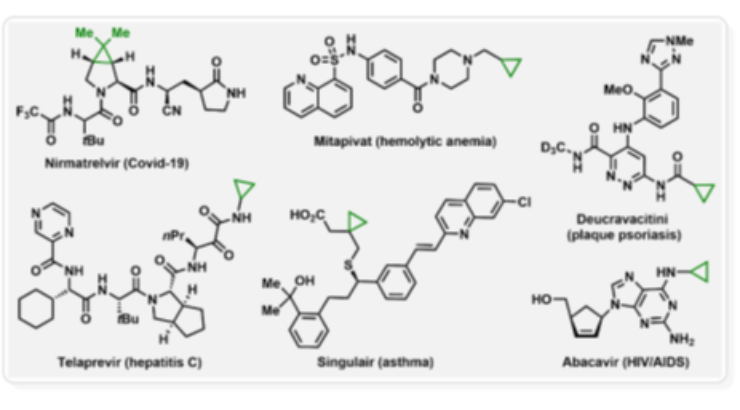New Method of Synthesis for Cyclopropanes
ID# 2022-5543
Technology Summary
Cyclopropane is a molecule that plays a key structural role in many natural products, preclinical, clinical, and commercial drugs. However, the current method of producing cyclopropane involves a highly energetic, reactive, and explosive reagent which creates numerous safety issues. Due to the danger of creating cyclopropane many safety precautions must be taken making the process of creating cyclopropyl rings inconvenient. Researchers at Penn State have addressed this issue by creating a novel method of forming cyclopropane using commercially available chemicals. Benefits of said process include:
· Utilizes commercially available chemicals
· Much safer and more efficient
· Resulting compounds have a longer shelf-life
· Can be applied to a wide range of compounds For more on this novel method, read the article in Science, https://www.science.org/doi/full/10.1126/science.adg3209.
Application & Market Utility
This technology offers a practical and broadly application strategy for the synthesis of cyclopropanes, opening new possibilities for drug development and natural product synthesis. Cyclopropanes are key features in many drugs approved by the FDA in use to treat COVID-19, asthma, hepatitis C, HIV/AIDs, and more. This method has potential to revolutionize how alkenes are cyclopropanated in the future.
Next Steps
Further research and development involve the effort of researchers to scale up the method so that the technology may be industrially viable.

